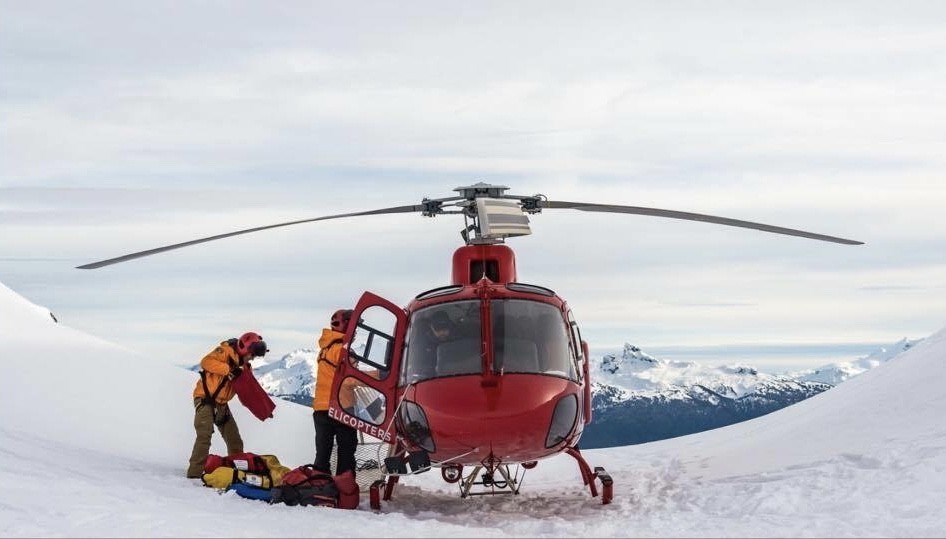When she was 20 years old, Bryn Nicholson found herself in a precarious situation in Garibaldi Provincial Park. She was alone and lost, in the middle of the night with a bear snooping around looking for food. Too scared to move or poke her head out of her sleeping bag, she just waited quietly for the bear to leave while asking herself how she got into this situation.
The answer to that question is that she was unprepared, which is the exact same word Brad Sills, president of Whistler Search and Rescue, used when asked about the most common reason for people to call search and rescue.
“‘Unprepared’ can be they didn’t quite understand the terrain they were going into, they didn’t understand it was too late in the day to be starting something like that and they didn’t bring enough food or clothing, so unprepared is a vast topic,” said Sills.
While Nicholson’s story turned out to have a happy ending with a friend coming to find her and walk her down the mountain, some incidents don’t end well. And often it’s because the lost person hesitates to call search and rescue (SAR) due to the belief they can find their way out on their own.
“There’s always the ego,” said Dwight Yochim, senior manager at B.C. Search and Rescue Association (BCSARA). “You know, ‘I can get out of this, I’ll figure it out, I must be close to the trail or the road’ and when someone is lost, the longer they delay, usually the longer they get away from the known trail and it becomes more and more difficult to find them.”
One of the other main reasons people delay calling search and rescue, said Yochim, is the constant circulating rumours that calling for help comes with a charge for the service, which is why the BC Search and Rescue Association (BCSARA) has put out a campaign to squash those rumours.
“It’s usually the social media couch cowboys that start the rumours and it kind of picks up a bit of steam” said Yochim. “You know how social media works and that’s why we try to jump on top of those as soon as possible. So we thought if we put this out and really explain our position clearly maybe that will help in the future.”
The campaign is simply called No Charge for Rescue and consists of a series of videos breaking down different situations where SAR can be of assistance, all free of charge. The hope is that more people will call for assistance the second they realize they might be lost instead of hesitating and potentially making their situation even worse.
BCSARA is pushing this message hard right now, because not calling for help, or even just hesitating to call, can dramatically diminish the chances someone will be found alive or uninjured, according to Yochim.
And when panic and disorientation set in, the chances of disastrous results increase even more.
“If you have gotten yourself lost, you are going to continue to do so,” said Sills. “The human condition is such that disorientation quickly sets in.
“So you are going to get more lost, and that’s going to have psychological effects upon you. Panic is going to set in.”
That’s what happened to Nicholson, who after realizing she was lost, made poor decision after poor decision because she started to panic.
“I was 20 years old, I was living in the city. I don’t even think I knew what search and rescue was, let alone what their number would have been,” she said in explaining why she called a friend to help instead of calling SAR.
“I’ve been in a state of panic a few times and it’s really hard to make clear decisions when you are like that. The decisions you make aren’t always logical. I find when you are panicking a little bit, your mind plays tricks on you. I didn’t put any thought into calling this guy; I just pulled out my phone, I was in tears, and it was just the first thing that popped into my brain.”
To avoid similar situations to the one Nicholson found herself in, both Yochim and Sills urge everyone to go to adventuresmart.ca and learn how to prepare for the worst when out in the wilderness, and to follow the three T’s: trip planning, training and taking the essentials.
They also hope hikers download the free AdventureSmart app that can help with trip planning, will send a notification to an emergency contact when the trip takes longer than expected and can even assist SAR in finding the lost hiker by sending them access to the trip plan.



.jpg;w=120;h=80;mode=crop)


